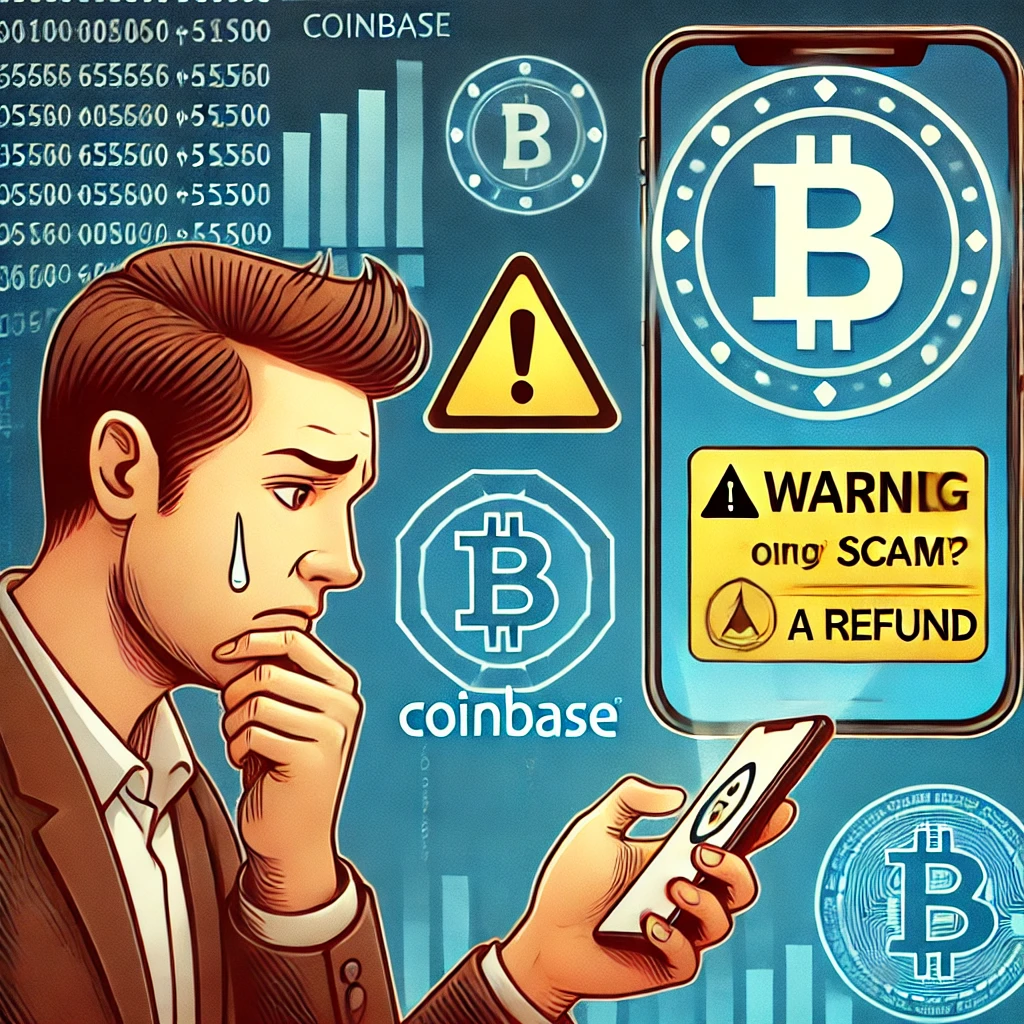As cryptocurrency adoption grows, so do scams targeting crypto users. If you’ve been scammed on Coinbase, you might be wondering whether you can get your money back. Unfortunately, cryptocurrency transactions are typically irreversible, making refunds challenging. However, there are steps you can take to report fraud, secure your account, and explore potential recovery options.
Does Coinbase Offer Refunds for Scams?
Coinbase does not guarantee refunds for scams or fraudulent transactions. Since blockchain transactions are irreversible, once funds leave your wallet, they cannot be recovered unless the recipient voluntarily returns them. However, there are certain scenarios where you may be able to recover your funds:
- If the Scam Involved Unauthorized Access
If a scammer gained unauthorized access to your Coinbase account and made transactions without your consent, you should:
Report the fraudulent transaction immediately through the Coinbase Help Center.
Freeze your account by contacting Coinbase customer support.
Enable two-factor authentication (2FA) if you haven’t already.
Change your Coinbase and email passwords to prevent further unauthorized access.
In cases of unauthorized transactions, Coinbase may be able to assist in recovering funds, especially if reported quickly.
- If You Were Victimized by a Scam but Authorized the Transaction
If you willingly sent funds to a scammer—whether through a phishing website, fake investment scheme, or fraudulent giveaway—Coinbase typically cannot reverse the transaction. However, you can still take action:
Report the scam to Coinbase so they can investigate and potentially block the scammer’s wallet.
Contact law enforcement and provide all relevant details.
Report the scam to the Federal Trade Commission (FTC) and the Internet Crime Complaint Center (IC3) in the U.S.
- If You Paid with a Linked Bank Account or Credit Card
If you funded your Coinbase purchase with a bank transfer or credit card, you might have additional options:
File a dispute with your bank or credit card provider. Some banks offer chargeback protections for fraudulent transactions.
Check if your payment method offers fraud protection. Some credit cards provide buyer protection that may cover scams.
Keep in mind that disputing a transaction with your bank may result in your Coinbase account being restricted or closed.
How to Protect Yourself from Coinbase Scams
To reduce the risk of scams, follow these security tips:
Verify all websites and emails before entering login credentials.
Never share your 2FA codes or recovery phrases with anyone.
Avoid “investment opportunities” promising guaranteed returns.
Use hardware wallets for large holdings to increase security.
Final Thoughts
While getting your money back after being scammed on Coinbase is difficult, acting quickly can improve your chances. If unauthorized transactions occur, report them immediately. If you willingly sent funds to a scammer, legal action and reporting the fraud are your best options. Always remain cautious and follow security best practices to protect your crypto assets.


